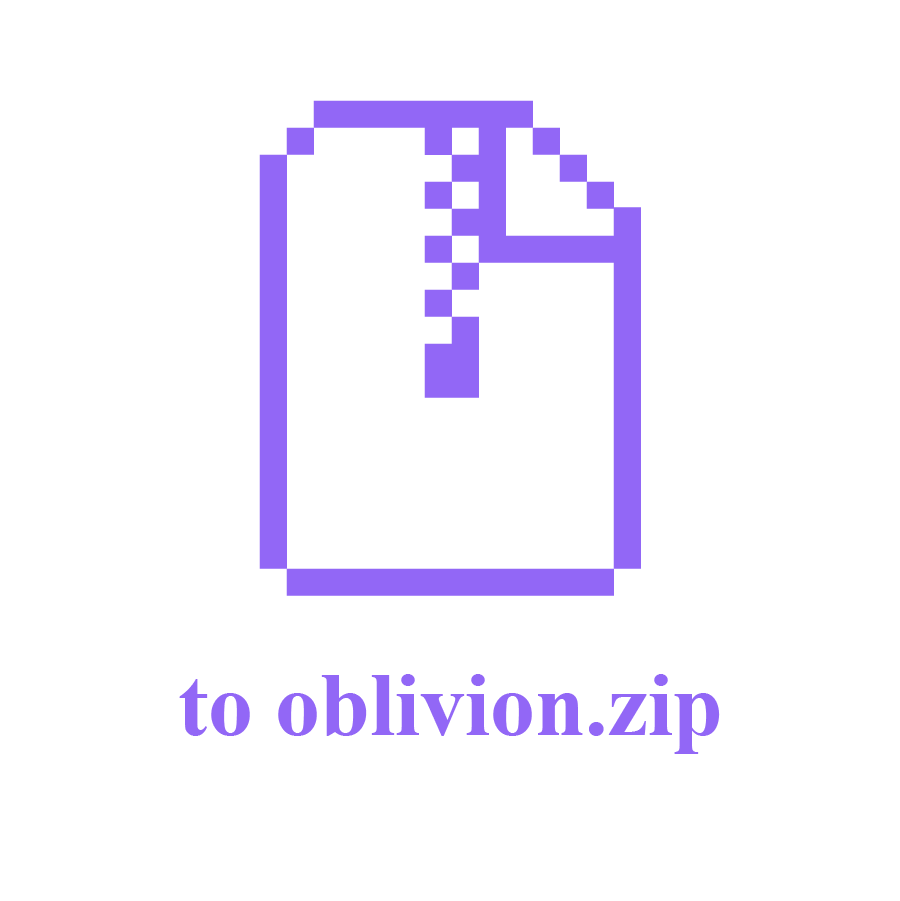The Download is a series of Rhizome commissions that considers posted files, the act of downloading, and the user’s desktop as the space of exhibition.
to oblivion.zip by Sheida Soleimani is part of The Download, and the zip file is available here.
The latest Download commission, by Sheida Soleimani, laments the death of Reyhaneh Jabbari, who was convicted and hanged in Iran on October 25, 2014 for the alleged murder of her rapist. to oblivion.zip, a dirge-like work that eulogizes Jabbari’s untimely death, consists almost entirely of Jabbari’s own written and spoken words. Once expanded, the ZIP file presents a multi-layered work of nested folders that contain execution records, letters, photographs, and voice recordings. Soleimani has been creating photographic and sculptural works focused on human rights violations in Iran since 2015. This is the first time that she has used a digital download to publish her work.
Deep within to oblivion.zip, Soleimani buries two high-resolution photographic works; they pay homage to both Jabbari and her mother, Sholeh Pakravan. As proxies, the photographs stand in for absent bodies — one dead, the other living but unable to escape her loss. Since Jabbari’s execution, Pakravan has devoted herself to amplifying the story leading to her daughter’s death. On YouTube, a filmed recording shows Pakravan mourning in public, addressing a framed photograph of her daughter. In another video, on the day after Jabbari’s execution, Pakravan shouts, “Happy birthday, Reyhaneh! You’re now comfortable, my child” to onlookers in the street. One year later, dressed in black, she commemorates the traumatic event with other women in the streets of Tehran, pleading for the story to be discussed. She says, “When you are in line at the bakery to get your bread, speak about torture and execution, because it must be talked about.” Because of Pakravan’s efforts, the story of Jabbari is fairly well-known, and its details can easily be found online. Executions of women in Iran receive little or no media attention; information is suppressed, and their stories simply disappear. Soleimani names and shows images of nine other women within to oblivion.zip, as well as (incomplete) execution records.
Letters written by Jabbari, translated by Soleimani into English, express her thoughts and feelings while in prison, where she experienced solitary confinement and was tortured. The first of many files encountered in to oblivion.zip is found in the fifth folder, in a string of six folders, that spells out the opening line of the work: “I am Reyhaneh Jabbari / and am 26 years old / I confess that I / am no longer willing / to continue this / way of life.”
In the folder “to_continue_this” is a text file containing Jabbari’s writing, simply titled “letter 13,” and a photograph showing her handcuffed at her trial, titled “Reyhaneh_Jabbari.jpg.” Another folder finishes the sentence — “way of life.” From there, the work continues. “letter 13” speaks of trauma: “It feels as if the meaning of life is only breathing and sewing the seams of day to the seams of night. Repetition and expectation has worn out my spirit — like sandpaper on my soul. At the moment both my body and my soul are bloodied and wounded.” This and other passages hit hard. Soleimani writes Jabbari’s words into the work as obstacles, disguised as treasures. The reader encounters the dossier as a thing to discover, to explore, its acts of opening and viewing feeding our voyeuristic desire to click and see everything contained. To own the work, and the story, and to know her fate. But this isn't forensic material. Soleimani describes to oblivion.zip as being like a Trojan horse, unfurling on the user’s desktop and commanding their attention. The work requires patience and commitment, following Jabbari’s own soul searching as her words persist towards the terrible conclusion.
How do we mourn online? Physical displays of grief, like crying, wailing, or pounding the chest, even falling to the ground, are gestures that haven’t found their digital equivalents just yet. to oblivion.zip shows how lamentation might take another form: a network-based publication that translates a public display of loss into an intensely private, albeit shareable, experience. By opening up these files and filling the local desktop with letters and images, the conditions for memorializing the dead change each time, the arrangement and layering of windows allowing for different, shifting views of the deceased’s story. Unlike social media, where we post memories or even talk directly to the dead on recently vacated Facebook pages, the circulation of an archive of material is not about having the last word, or signaling grief. By publishing to oblivion.zip as a freely available download, Soleimani suggests that a contemplative, reflective experience may also be a political one. As Jabbari’s words are shared, we activate her trauma inwardly, privately mourning the loss of life, while continuing to write her story again and again.
Note: this work may not be accessible on Windows machines due to limitations on the length of file paths.
The Rhizome Commissions Program is supported by Jerome Foundation, American Chai Trust, the National Endowment for the Arts, the New York City Department of Cultural Affairs, and the New York State Council on the Arts with the support of Governor Andrew Cuomo and the New York State Legislature.